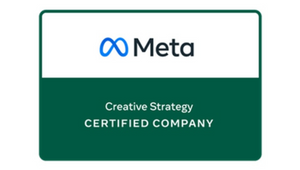
Human Truths One Year Later: Lessons for Security In a Time Of Coronavirus

Image Credit: Shutterstock
Over the course of the last year, we have been tracking the impact of the pandemic on universal human truths. We know that people across Europe and the UK have been considering what truly matters, with nearly half of Europeans saying that they believe that the world will forever be changed by the pandemic. In our ongoing series 'Human Truths in a Time of Coronavirus', we have explored how the fundamental human truths have been reassessed by people around the world and how brands, businesses, and organisations can respond in a meaningful way.
As we enter the second year of the pandemic and search for a path to renewal, we have invited thought leaders from diverse sectors and areas of expertise from across Europe and the UK to reflect on what they have changed their mind about when it comes to each of these truths. In this second instalment of a six-part series, we have asked our contributors to reflect on what they have changed their mind about when it comes to the human truth of security.
None of us can forget that shortly after the discovery of the virus in nations across the region, citizens quickly began to stockpile everything from yeast to toilet paper. It was of little surprise that when we initiated our research that nearly 1 out of 3 Brits (22% of Europeans) were worried that their countries would run out of necessary supplies. This worry has since tapered significantly in countries like Germany and France, but 1 out of 5 Brits continue to express concern about the reliability of the supply chain.
One year later, economic uncertainties have remained high, with 1 out of 4 across the region saying that they are personally worried about losing their job or struggling financially. Perhaps most worrisome is the fact that even as vaccination programmes are rolled-out across the region, the belief that lots of people will die has only dropped by 6%, from 54% to 48% in the course of the last year. Unsurprisingly, 1 out of 3 people across the region tell us that they are more anxious now than they were in the past.
Our contributors provide insights on how the singular event of the global pandemic has profoundly challenged the experience and value of the human truth of security in their lives and work. What emerges is a prismatic understanding of how risk, safety, uncertainty, and constant threat has conditioned behaviour and belief in the region. These reflections on security provide a series of lessons for mitigating risk and managing uncertainty in challenging times.
Black Swan events are inevitable; scenario planning should be a practiced reflex.
STEFAN KOLLE: “Whether you're a believer in lockdowns or a believer in vaccines, the decisions we’re seeing are being driven by impulse: a headline in the newspaper in the morning and everybody outside the UK stops AstraZeneca vaccinations. Scientifically, it's complete nonsense but people don't have the time to really think about things. Suddenly, there's this constant risk awareness. We suddenly experienced this external shock that the Black Swan people were predicting but none of us really accepted. So what if other shocks come? How do we deal with that loss of security? If nothing else, we start sketching out scenarios and how you deal with them. We do this for our customers, but we also do that for ourselves.”
As a leader, it is imperative to provide and communicate unconditional safety.
NICKY BULLARD: “I feel really humble and proud that we made some tough decisions on certain things very early on… we're not through it yet, but we've got as far as we have fingers crossed without losing anybody literally from my business in London. I feel very secure in my home and being with my family, but the world has become smaller for me and probably for lots of people. I think about people who are struggling everyday: mental security and safety is hugely important for me. We're doing as much as we can as a business to make work life feel safe and secure: whatever your background, whatever you're going through, whatever your circumstances that you feel safe and secure coming to work.”
Being more questioning in general could lead to safer conditions overall.
PETER CULLEY: “Each year, we become more aware of issues of safety in relation to weather, food availability, and lingering potential for widespread poverty. Black Lives Matter has been completely game changing for massive sections of the white middle class like me, in seeing more blatantly how unsafe the world is for many people. Safety also relates to state of mind, and I have definitely felt the final stage of Brexit and perhaps ongoing signs of disunity in Europe have created a troubling sentiment for me. Overall, I think we may be learning not to take too much for granted (though I’m always surprised how financial advisers put so much confidence on totally unprecedented low interest rates) and on the whole, I’ve never felt being complacent worked out all that well. So being more questioning could also create safer conditions.”
Be prepared to support a decade of youth activism destined to challenge the world that today’s youth stand to inherit.
DR. GABRIEL DATTATREYAN: “The next generation (Gen Z) is already very tuned into the uncertainty and precarity of the future: global climate change is their future not some distant future for another generation alongside a re-emergence of a recognition of racial divides and inequality. That’s doing a couple of different things for the young people that I teach: on the one hand, it's creating momentum and impetus for organising and political activism. I see the next decade as being a decade of organising and activism in the global North that mirrors what we were seeing a decade ago in the Arab Spring. On the other hand, I also see a great deal of mental health crisis: young people are really, really, really struggling with the world they're inheriting and with themselves in the world that they're inheriting.”
The pandemic has highlighted how institutions built to secure public safety must be fundamentally renewed.
LUCY AITKEN: “The recent demonstrations on Clapham Common in south London showed how much of an important issue personal security is to many women who spoke out about how unsafe they regularly felt, prompted by a policeman being charged for murdering Sarah Everard. Given that the very institutions that are supposed to protect people are now being exposed as the antithesis of safety – and women are brutally silenced by them when they group together – we are heading towards a lack of confidence in safety, particularly for women. More than ever, following a year of the pandemic, a year spent pretty much at home from which we are due to emerge at some point this year, and a year of unrest (BLM, the storming of the U.S. Capitol, Clapham Common) we need reassurance that it’s safe out there. People’s mental state is fragile enough without this extra dimension of anxiety.”
Sometimes, the safety of home is the most powerful antidote to a year of public insecurity.
FAMEED KHALIQUE: “In my work, there's been an uptick in people wanting to protect themselves: if that means buying a house in the country or doing things to make their homes a safer, nicer environment. People have gone into retreat and are spending money on dressing rooms, a sort of inner chamber that reminds me of interior design from the 19th C. I think this trend is about having a space in the heart of the house, that’s not visible or really accessible to anyone but the owners. This is partially about security, but it’s also about recharging. It's not for anybody else. These are warm interiors spaces with lavish details that show how much people are willing to spend on themselves in the interest of safety, security, and comfort.”
About the authors and contributors:
Lucy Aitken, Managing Editor, LIONS Intelligence
Nicky Bullard, Chairwoman, MRM Europe & Chief Creative Officer, MRM UK
Dr. Rodney Collins, PhD, SVP, Director, McCann Worldgroup Truth Central
Peter Culley, Creative Director, Founder, Spatial Affairs Bureau
Dr. Gabriel Dattatreyan, PhD, Senior Lecturer, Goldsmiths, University of London
Fameed Khalique, Founder, Fameed Khalique
Stefan Kolle, Partner & Founder, FutureLab
Harjot Singh, Global CSO, McCann













